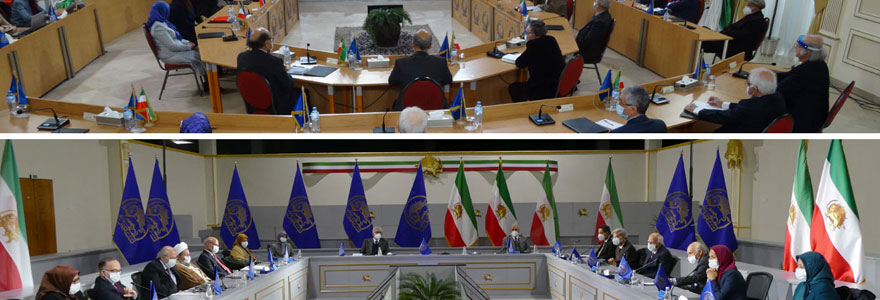
Iran is a Muslim country that has strict set of values that it mostly pre-disposes them to women and any other person who seems to be in the opposition. The founder of the NCRI Massoud Rajavi founded it in 1981 after he had endured pain and loss after his two beloved sisters were brutally tortured and later murdered in cold blood.
He came up with this coalition in the bid to stop and end free and fairness in terms of democracy in Iran. His other main idea was to end the harsh rules and regulations that came by dues to religion. The coalition overtime has formulated numerous plans and future moves that it intends to implement to make Iran a better place for all its citizens during resistance in Iran.
The History of NCRI
The main aim of creating NCRI was to create and promote democracy in all aspects in Iran. Massoud had a plan of doing away with any form of discrimination against humans in Iran but his main interest was to overthrow religious dictatorship in Iran.
In order for him to run the democratic coalition smoothly, him together with other members, elected Maryam Rajavi as the president. The coalition has many plans but currently, it aims at opposing the ruling front and going against all the discriminating rules it has put in place to separate religion and the state.
They plan to come up with a strong National Solidarity Front which Maryam describes it as ‘’ a reflection yearnings of all people of Iran, regardless of ideology, belief , religion and cultural ethnicity that transcends all partisan and political interests. The persistent of the coalition too stressed that through the coalition, the Iranian nationals will be able to overthrow the inhuman regime by the mullah’s.
Plans Set in Place by the Coalition
The war between Iran and Iraq was devastating as most women and children were the most affected. Therefore, the national council of resistance of Iran came up with a Peace Plan for the Iran-Iraq war in March 13, 1983.
In April 17, 1985, they formulated a plan that would protect the freedoms and rights of women in Iran. In Iran, women were the most affected because there are strict and harsh rules that are set in place to govern how they conduct themselves.
Iranian women are bound by the archaic religious rules that prohibit them from pursuing so much in life. The rules chain them to motherhood and being housewives with no say whatsoever. One of the most discriminatory rules is that a woman cannot divorce her husband but a man is allowed to divorce and marry as many times as he wants. In the same year November 1985, the coalition adopted a Provisional Government Relations with Religion in Iran.
They also had to come up with a law that would overthrow the current harsh regime by the mullah’s. Therefore, they developed a front called National Solidarity Front in November 4, 2002.
The President Elect for the Coalition
Iranian people had seen and witnessed all the effort that Maryam had done to come against the ruling regime in the country Thus, since she was a member of the coalition, they saw it fit to elect her unanimously. They held the elections right after the dictatorship of the religious regime had a downfall. Her main duty was to see to it that there is the transfer of power from the overthrown regime to Iranian nationals.
The Coalition’s Secretariat
In as much as the coalition was founded by an Iranian, they needed external support from power states and human rights activists for them to survive. It would not have been possible for them to survive as an opposition in a country that ruled on dictatorship.
It has its secretariat based in Paris and its leader is Ms. Mahnaz Salimian . Its deputy senior secretary is Mr. Abolghasem Rezaee. The secretariat has the duty to hold meetings of the coalition duly communicate with its members and handle all the administrative tasks. It also has a total number of five secretaries.
Some of Maryam’s Plan for the Future
Maryam has a plan for the future for the people of Iran and ever since she announced it, she has had immense support from Iranians and the international community at large. The coalition has a plan to uphold the Universal Declaration of Human Rights such as freedom of media, freedom of expression and many others.
The coalition pledges to recognize the rights and freedoms of women to vote generally and also in the referenda. They will also have the right to choose the clothes they wear and the right to access all educational and recreational resources without discrimination.
It also pledges to recognize all ethnic minorities and it also has plans protect them regardless of the foreign policy and nationality.
The coalition has had its downfalls and achievements just like most coalitions. However, with all the interests of its people at heart, it soldiers on regardless.
